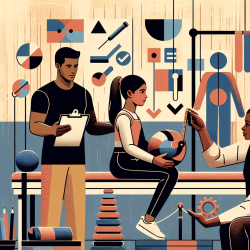Introduction
In the realm of educational psychology, the focus has often been on academic achievement, sometimes at the expense of students' subjective well-being (SWB) in school. However, recent research underscores the importance of integrating both academic success and well-being to foster holistic development in adolescents. A pivotal study titled Achievement Goal Orientations and Adolescents’ Subjective Well-Being in School: The Mediating Roles of Academic Social Comparison Directions explores this intricate relationship.
Understanding Achievement Goal Orientations
Achievement goal orientations refer to the reasons or goals that drive students in their academic pursuits. They are categorized into three types:
- Mastery Goals: Focused on self-improvement and learning.
- Performance-Approach Goals: Aimed at outperforming peers.
- Performance-Avoidance Goals: Centered on avoiding failure and appearing incompetent.
The study reveals that mastery and performance-approach goals positively correlate with SWB in school, while performance-avoidance goals have a negative correlation.
The Role of Academic Social Comparison
Academic social comparison directions—upward and downward—serve as mediators in the relationship between achievement goal orientations and SWB. Upward comparisons involve evaluating oneself against higher-achieving peers, while downward comparisons involve comparing oneself to lower-achieving peers.
The study found that:
- Upward comparisons positively mediate the relationship between mastery and performance-approach goals and SWB.
- Downward comparisons mediate the relationship between mastery and performance-avoidance goals and SWB, often negatively.
Implications for Practitioners
For practitioners, these findings highlight the importance of fostering environments that encourage mastery and performance-approach goals. Encouraging students to engage in upward social comparisons can also enhance their SWB. Practitioners should consider:
- Developing programs that promote mastery-oriented learning.
- Creating opportunities for students to engage in healthy upward comparisons.
- Providing support to students with performance-avoidance tendencies to reduce negative impacts on SWB.
Encouraging Further Research
While this study provides valuable insights, it also opens avenues for further research. Longitudinal studies could explore the causal relationships between goal orientations, social comparisons, and SWB. Additionally, examining cultural differences in these dynamics could offer a more comprehensive understanding.
To read the original research paper, please follow this link: Achievement Goal Orientations and Adolescents’ Subjective Well-Being in School: The Mediating Roles of Academic Social Comparison Directions.










